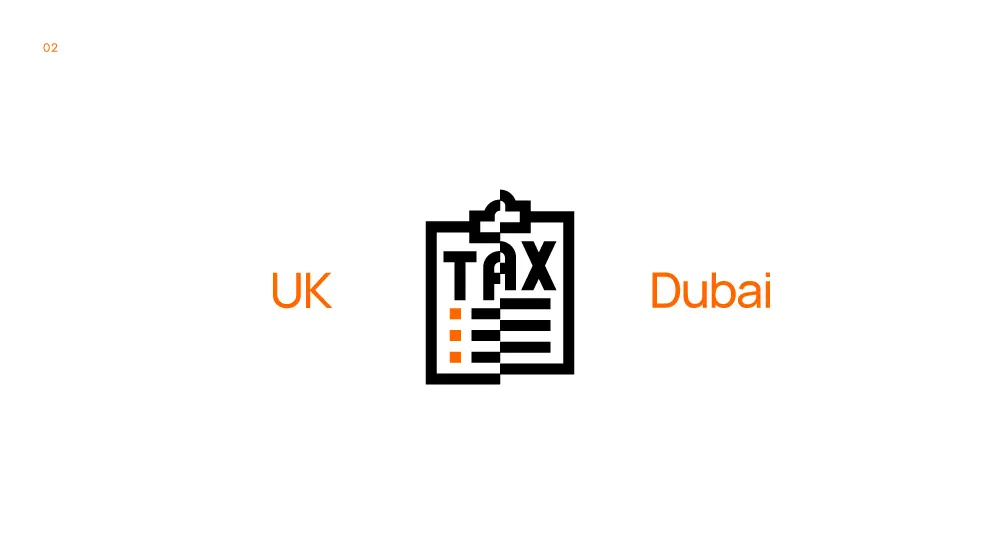Dubai attracts people from all over the world. For many UK business owners, it’s the promise of tax-free income and a warm lifestyle. But before making the leap, it’s smart to understand what changes and what stays the same when it comes to your tax duties when moving to Dubai from UK tax.
Table of Contents
Say Goodbye to UK Income and Corporation Tax
In Dubai, personal income tax does not exist. Your income is yours to keep. Business tax is also low to none in many cases, especially for firms operating in free zones or with profits under the corporate tax threshold. The government funds public services in other ways, like through VAT and business fees. If you’re running a business in Dubai, your earnings may be subject to almost zero tax.
But the UK tax office doesn’t stop caring once you leave. If you earn income from UK sources, HMRC still wants its share. That means rent from UK property, pensions, or UK business income will still be taxed. Anyone moving to Dubai from UK tax rules must keep this in mind while also understanding how tax in UAE works.
Recent UK Tax Developments

Recent UK budgets have included tax rises that hit business owners hard. Corporation tax has increased to 25% for many companies. Dividend tax rates have also gone up. The tax-free allowance for capital gains has been cut sharply. These changes make running a business in the UK more expensive. For many, Dubai’s low-tax setup is now a smart alternative.
In fact, Dubai has seen a surge in interest from UK business owners. According to recent relocation consultants, thousands of UK entrepreneurs have moved to Dubai in the past two years alone to avoid rising taxes at home. This trend reflects a growing shift toward low-tax jurisdictions among business leaders seeking stability and savings.
Moving to Dubai from UK Tax: Rules, Reliefs, and Residency Guidance
Understand UK Residency Rules
To stop paying UK income tax on foreign earnings, you must become a non-resident. HMRC uses a test called the Statutory Residence Test. It looks at how many days you spend in the UK, your home, work ties, and family links.
In general, you become a non-resident if you spend fewer than 16 to 91 days in the UK per year, depending on your ties. Get this wrong and you might still owe UK tax on your Dubai income. This is a key point for anyone thinking about moving to Dubai from UK tax liability.
The UK and UAE also have a UAE/UK double tax treaty in place. This means you won’t be taxed twice on the same income. It gives UK business owners extra protection when earning abroad. The treaty helps clarify which country has taxing rights over specific types of income and ensures smoother compliance.
Use the Split-Year Rule

If you move partway through a tax year, you may qualify for split-year treatment. This rule lets you pay UK tax only for the part of the year you lived there. After your move, your Dubai income can be tax-free.
This isn’t automatic. You must meet certain conditions and often report it in a self-assessment. It’s worth checking with a tax adviser when moving to Dubai from UK tax systems.
Notify HMRC

Before or after your move, tell HMRC you’re leaving. You do this by filling out a P85 form or noting it in your self-assessment. If you don’t usually do self-assessments, the P85 is your go-to.
This helps HMRC understand your situation and prevents confusion later. It can also speed up any tax refund you might be due when moving to Dubai from UK tax obligations.
What Happens to UK Property?

If you own a rental property in the UK, you still pay UK income tax on the rent. This applies even if you live in Dubai.
You must also join the Non-Resident Landlord Scheme. This lets you receive rent without tax taken off at source. You still declare it and pay what you owe at year-end.
Selling a UK property? You might face Capital Gains Tax (CGT). HMRC wants CGT even from non-residents when the property is in the UK. You must report sales within 60 days. This is essential for those moving to Dubai from UK tax rules.
Keep an Eye on Inheritance Tax
Inheritance Tax (IHT) can still apply even after you leave the UK. That’s because IHT is based on domicile, not residency. If you are still UK-domiciled, your worldwide assets could be taxed.
Domicile is a deeper tie to the UK. It often follows your parents or is linked to where you plan to live long-term. Changing domicile is hard. A long stay in Dubai may help, but don’t count on a quick fix. If you’re moving to Dubai from UK tax perspectives, understand your domicile status.
UAE Corporate and VAT Rules for UK Business Owners

Dubai has no personal tax. But from June 2023, the UAE introduced a 9% corporate tax for profits over AED 375,000. Many small businesses or freelancers fall below this line.
Also, VAT applies at 5% in the UAE. This includes goods and services in most sectors. Free zones may offer some relief, but only in special setups.
If you start a business, check if your setup qualifies for tax-free status. Free zones like DMCC or DIFC often offer full ownership and low taxes. These are popular for those moving to Dubai from UK tax regimes.
Banking and Financial Planning
Before leaving the UK, think about your bank accounts and savings. Many expats keep a UK account for bills or income. Let your bank know your status to avoid issues.
You might want to open a bank account in Dubai. This needs a UAE visa and proof of address. Most banks are modern and expat-friendly.
Also, rethink your pension. UK pensions stay taxable in the UK. You might transfer to a QROPS or similar scheme, but this needs expert help. Financial planning is vital when moving to Dubai from UK tax expectations.
Investment in Dubai and Access to Global Markets Without Tax

Dubai is a major gateway for tax-free international investing. If you’re moving to Dubai from UK tax systems, this is one of the most attractive benefits.
From Dubai, you can invest in global property, shares, and start-ups without facing personal income tax. There is no capital gains tax, no dividend tax, and no tax on interest. This gives you full control of your profits.
Dubai’s strategic location connects you to markets in Asia, Africa, and Europe. Its free zones, such as DIFC and DMCC, offer 100% foreign ownership and allow businesses to operate without local partners. These zones often provide tax relief on corporate earnings below set thresholds.
Many investors also take advantage of Dubai’s clear rules and quick setup processes. The city makes it easy to hold assets and move money globally without tax frictions. If you’re growing a portfolio or managing an international business, Dubai provides a tax-neutral base.
Why Dubai Works for UK Business Owners:
- Set up in free zones with full foreign ownership
- Benefit from low to zero corporate tax
- No personal income tax on business earnings
- Trade easily across global markets
- Protect assets in a stable legal system
- Access fast business setup and support
- Save money compared to high UK tax rates
Stay Compliant and Save on Taxes With GCG Structuring

Moving to Dubai can cut your tax bill to zero. But if you get the rules wrong, the UK can still come calling. Plan ahead and keep track of your ties.
GCG Structuring helps UK business owners make the move. We handle the company setup in Dubai, sort the paperwork, and show you how to stay compliant. Several clients have significantly reduced their tax liabilities after switching to Dubai. Some now pay no income tax at all.
If you’re looking to leave high UK taxes behind, GCG Structuring knows the steps. We have done it before. We can help you do it right and stay tax compliant.
The sun, safety, and savings are real. So are the rules. Be ready before you go. If you’re moving to Dubai from UK tax rules, let GCG Structuring help you get it right. Book your free consultation today.




